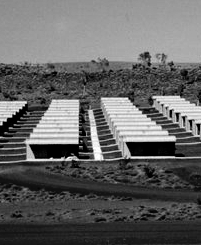QRC wants workers' right to decide
 The Queensland Resources Council says workers themselves want to choose where they live, not have the choice made by companies, unions, or any other group.
The Queensland Resources Council says workers themselves want to choose where they live, not have the choice made by companies, unions, or any other group.
The resources lobby conducted a survey of about 2,300 workers for its submission to the Queensland Parliamentary Inquiry into fly-in, fly-out (FIFO) and long-distance commuting practices.
The QRC says it survey showed both residential and non-residential options must be available, so companies can attract the best employees.
“The QRC calls on the Parliamentary Committee to ensure it hears from a representative cross-section of the workforce during its deliberations,” QRC Chief Executive Michael Roche said.
Roche said that while there is clear political agreement that against 100 per cent FIFO workforces at projects near established communities, the very idea of 100 per cent FIFO mines is a “huge furphy”.
“I understand that only two coal mines in all of the Bowen Basin have ever been granted approval for a 100 percent FIFO operational workforce, but even at those two mines, in any month, around 1000 local workers and contractors provide services to the mines,” Roche said.
“Flexible workforce arrangements are essential to secure the resources sector’s long-term future and the sourcing of labour should continue to be determined on a case-by-case basis, taking into account proximity to local towns, the availability of skilled labour and the competition for that labour.
“The overwhelming majority of resources sector operations in Queensland employ a mix of residential and long-distance commuting workers and will continue to do so
“Long-distance commuting extends our sector’s benefits to more Queenslanders, and a regulatory approach could threaten the economic viability of current projects and be a deterrent to future resources investment in Queensland.”
The Queensland Government’s FIFO review is looking at the effective of a commuter-heavy workforce at mines located near a town or regional community.
It will look at the economic and social impacts of FIFO work practices both on the workers and communities.
In its submission to the inquiry, the CFMEU called for compulsory 100 per cent FIFO operations to be discontinued, and no new licenses for 100 per cent FIFO workforces to be approved.
“Where companies once built towns to support their operations creating thriving communities through regional Queensland, they now show little interest in or loyalty to those towns and communities that have supported them and supplied labour to them for generations,” the CFMEU said.
The union wants FIFO workers to have the opportunity and a financial incentive to relocate themselves and their families to areas within driving distance of their work site.
The CFMEU also wants a tax on beds in worker camps for mine operators and/or camp owners to pay local and state governments for services and infrastructure needs.







 Print
Print